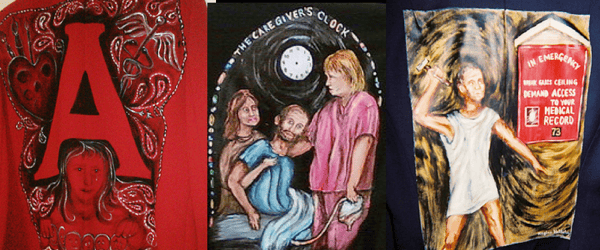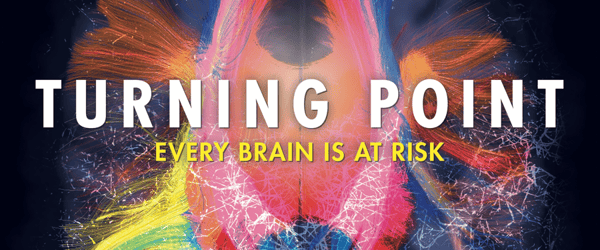MENU
Here’s what we know: We need better ways to make people aware of what’s out there. 80% of clinical trials are delayed or closed. Why? They lack participants—despite evidence of a strong interest in the same trials. An NIH survey found that 85% of cancer patients at the time of diagnosis were either unaware or unsure of the option to participate in research studies. If they had known, 75% would have been willing to enroll.
So how do we deliver on this willingness and give patients the information they need to take part? For starters, our blog and website provide basic educational tools, but every disease and every trial is different. So, who can get to the core of the patient experience? Patients themselves.

Antidote provides a platform for patients to share their stories through a meta-community that spans all therapeutic areas in each of our 300+ partner communities. These patients have lived with their conditions, some have taken part in clinical trials, and most are excited to share their stories. Antidote facilitates that sharing.
Storytelling allows patients to connect, teach, and learn. Imagine the practical power of reading about someone living with your own condition, taking part in a clinical trial to treat that condition. Consider the real value in hearing how caregivers advocate for and help loved ones. The act of sharing is a critical part of the personal journey. It leads to self-understanding, as it helps others encounter and come to terms with the unknown. Stories answer basic questions that people have about what to ask, what to do next, what to expect. The power of sharing in this way is not surprising.
Here’s the other thing about stories: They inspire. The personal testimony of patients and caregivers presents us with real people with challenges, fears, and pain fighting to be healthy and live their best lives. Courage in the face of illness. That affirmation is every bit as important as the ins-and-outs of treatment.

As we mentioned earlier, we’ll celebrate Clinical Trials Day throughout this month by bringing some moving stories to light. They’re from a variety of incredible people and touch on important aspects of medical research, such as access to data, caregiving, diversity in research, and coping through art or just coping. (We’ll even get into how to tell a good story!) Watch this space for updates, and check out the blog for their full stories.
Remember, if we’re going to transform the clinical trial landscape so that more patients can and do take part in research, we need to hear from patients who have been there. Please share our stories on social media, and don’t forget to send us your stories.
Ira and Sandy Asherman have been married for 40 years, but since Sandy’s Alzheimer’s diagnosis, Ira has stepped into the critical role of caregiver.
Theirs is a story of love in the face of Alzheimer's.
Shanelle Gabriel lives with lupus, but doesn’t let it stop her from sharing her incredible singing voice, maintaining a fit lifestyle, and advocating for minority health.
Shanelle has taken part in clinical trials and views sharing her experience as an important part of driving medical research forward.
Ed Gavagan is a regular guy with an extraordinary story to tell. Several years ago, he was a victim of gang violence in New York City and is alive today thanks to heroic medical efforts – and probably some luck. Since his attack, he has coped with PTSD by sharing his story through high-profile international storytelling platforms.
We were honored to have him tell us his story, and are pleased to share his valuable advice for other patients interested in doing the same.
Well Illustrated: Patients Finding their Voice through Art
Nina Beaty is an artist and an art therapist. In 2014, a diagnosis of small-cell lung cancer (SCLC) with a short life expectancy turned her life upside down. When her cancer didn't respond to standard treatment, she enrolled in an immunotherapy trial. Four years out, Nina has no evidence of cancer.
Throughout her experience with cancer, Nina turned to her love of painting and illustration to express her emotions. We sat down with Nina to learn how art helped her express herself when words failed.

Regina Holliday is a patient advocate who created The Walking Gallery of Healthcare, a “loose confederation of like-minded people trying to change the world.” Members wear a jacket decorated with a painting related to their healthcare journey to spark conversations around the patient voice.

Cancer Treatment Centers of America (CTCA) is a five-hospital system that has worked to harness the therapeutic benefits of patient storytelling through a partnership with StoryCorps, a nonprofit project with the mission of honoring and celebrating the lives of everyday Americans by recording and sharing their stories (via NPR), among other initiatives.
We spoke with Peter Yesawich, CTCA's Chief Growth Officer, to discuss CTCA’s work and their mission to hear and share the patient voice.

With a long line of disappointments in failed clinical trials, the last few years have not been good ones for drug development in Alzheimer’s disease. TURNING POINT is a documentary, produced in conjunction with BrightFocus Foundation, that follows the journey of researchers and patients working together on a trial for a new Alzheimer’s drug.
We sat down with the film’s director, James Keach, to discuss how all medical research is a story without an ending — but one which drives hope and provides the opportunity for all involved to leave a legacy.

We’d love to hear from you! If you are a patient looking for clinical trial support, connect with us at patientsupport@antidote.me